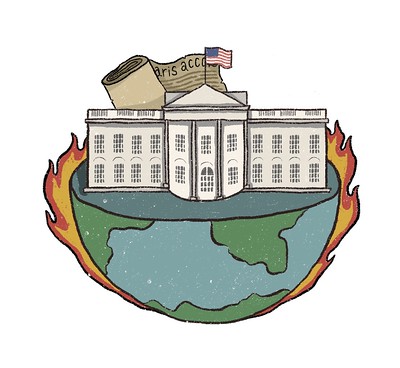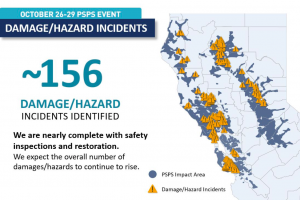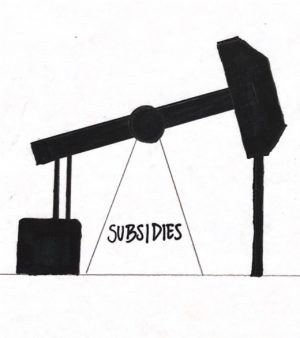Trump withdraws from Paris Climate Accord
December 27, 2019
On Nov. 4, President Donald Trump put in a notice that the U.S. would leave the Paris Climate Accord in exactly one year, which will be exactly one day after the upcoming presidential election.
By United Nations rules, the first day Trump would have been allowed to do so was Nov. 4, three years after it was created and after the U.S. joined. Whichever party wins the election will determine the future of the accord and whether it will still include the U.S.
“I don’t think that us withdrawing from the Paris climate accord is going to be the end-all of our progress,” AP Environmental Science teacher Ms. Annie Nguyen said. “There are still going be private industries that make it a priority to reduce carbon emissions, reduce greenhouse gases and utilize waste more efficiently.”
The Paris climate accord’s primary goal is to maintain the global average temperature within two degrees Celsius above that before the Industrial Revolution. One way it hopes to do so is by undertaking rapid reductions in carbon dioxide emissions.
The accord was signed by 175 parties (174 countries and the European Union), including the U.S. and China, which together represent almost 40% of global carbon dioxide emissions.
“Not only is there an international legislation that the U.S. was a part of, but it [the Accord] was one of the first signs that other countries of the United Nations can take the U.S. seriously as a world power that was making good of its power and position,” Nguyen said.
With the U.S. backing out, fewer countries will take part in the Accord. Because of this, its effectiveness is now being called into question.
“It really shows to the world that if the U.S. isn’t caring about climate change, then [other countries] don’t have to care either,” alumni Emily Nash, former president of DVHS environmental club Green Hearts, said.
Some people, however, debate whether the Paris Accords were even enough to stop the worst effects of climate change in the first place.
“The UN report which recently came out [in Oct. 2018] stated that the Paris Agreement was not enough to stop the two degrees Celsius rise,” Nash said. “After that point, we’re going to reach the tipping point, which we won’t be able to come back from.”
“I’m not sure that it makes a big difference,” Environmental Chemistry teacher Ms. Karen Dennis added. “None of the goals we agreed to in that accord were enforceable.”
However, there is some evidence that the accord was helpful. Symbolically, it showed almost the entire world coming together as a united front against a single issue, while practically, it laid out some goals for the world to achieve, even if some believed they weren’t enough.
“Having a world stage where you have leaders from multiple countries acknowledging that climate change is a human-caused issue and sitting in agreement is good,” Nguyen said. “Reducing our global temperature is something that will benefit everyone.”
Trump backing out of the Climate Accord, then, damages the reputation of the U.S. and puts the world on a backward path regarding climate issues. Nguyen believes that Trump might have left the Accord because of his desire to protect the coal industry.
“This current administration is very focused on economic development,” Nguyen said. “The Paris Climate Accord represents a threat to these industries.”
The Paris accord was not the first climate accord of its kind. In 1997, the Kyoto Protocol was signed by 193 countries, not including the U.S. Effective starting in 2005, it was also trying to get states to reduce their greenhouse gas emissions to combat human-caused climate change.
“Our then-president didn’t sign into the Kyoto Protocol,” Nguyen said.
Even if the U.S. is no longer in any climate accords, there are many ways we as individuals can combat climate change in little ways.
“We could make choices to use less fossil fuels moving forward in our everyday commutes,” biology teacher Ms. Carol Quach said. “We could try to eat less meat.”
Dennis added, “Drive a clean-burning car if you can afford it, don’t burn your fireplace, don’t use disposable plastic, keep your heat turned low and your air conditioning high. Basically, conserve energy, and don’t burn any more than you have.”
It’s important to note that despite all of the political argument regarding climate change that has occurred in recent debates and in the media, it is an important issue that affects all of humanity in a major way.
“We’re causing an unnatural rise [in temperature] and causing things to go extinct, and that’s not how it should be,” Nash said. “We’re really hurting the entire world.”





